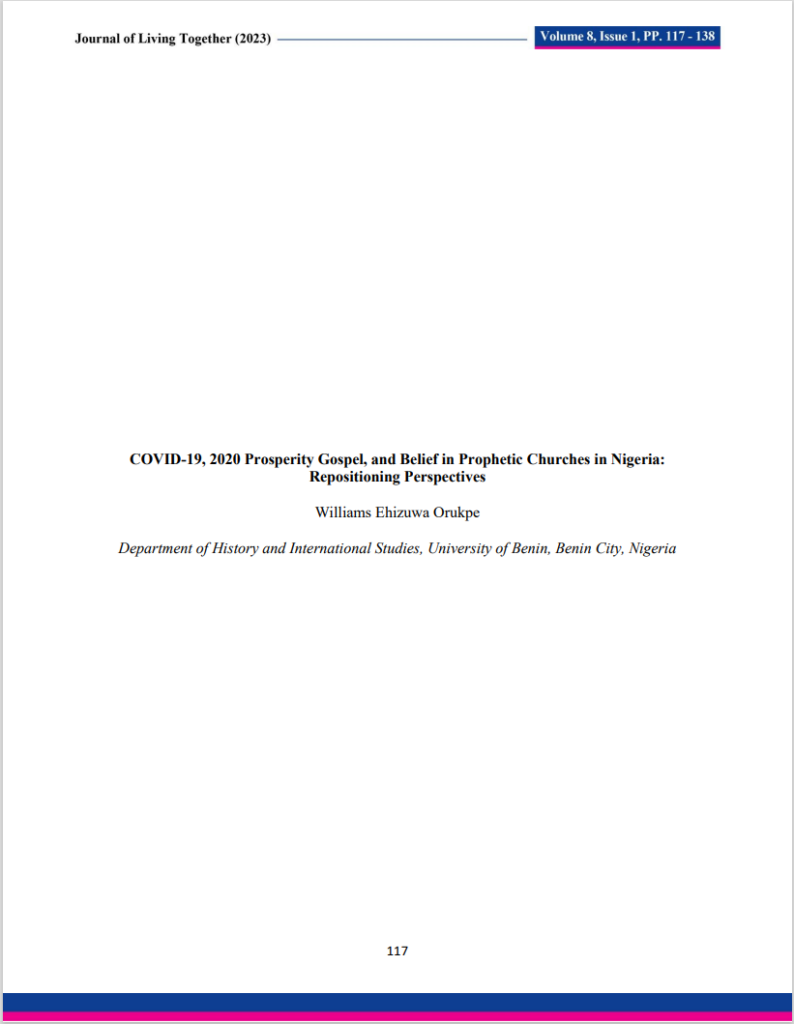Ethno-Religious Conflicts and the Dilemma of Democratic Sustainability in Nigeria
Abstract:
Nigeria in the last decade has been characterized by crisis of ethnic and religious dimensions. The nature of the Nigerian state seems to be not only responsible for the regrettably deepening ethno-religious crisis that have become endemic, pervasive and unfortunate, but also is increasingly proving incapable of evolving credible and competent strategies that should address this ugly trend. Indeed since 1966, the Nigerian state has embarked on structural reforms aimed largely at addressing inter-ethnic relations. While reforms like federalism and state creation have transformed the Nigerian state on one hand, they have not been able to fundamentally address the problem of ethnic mobilization and conflict. The inability of successive governments to demonstrate capacity to handle the country’s multifaceted socio-economic and political challenges has exacerbated the ethnic and religious identity conflicts made worse by several years of bad governance. The pertinent questions to ask therefore are: To what extent can ethnic and religious conflicts be said to be expressions of cultural and religious differences? And how has ethnic and religious conflict impacted on the sustenance of democratic governance in Nigeria? This paper adopts the instrumentalist model as an analytical tool in understanding the contingent situational and circumstantial use of ethnicity and religion in the pursuit of material advantage. Among other recommendations, Nigerian democracy should strengthen its institutional frameworks and structures to a broad based popular and participatory brand that will give the people a sense of belonging. It requires a reorientation of the elite towards production rather than consumption, as this will reduce tension, acrimony and conditions that predispose Nigerians to the vulnerability of ethnic and religious manipulations. Thus, the promotion of democratic principles of representation of all nationalities and interests in the governance process can enhance the sustainability of democracy.
Read or download full paper:
Journal of Living Together, 4-5 (1), pp. 152-163, 2017, ISSN: 2373-6615 (Print); 2373-6631 (Online).
@Article{George-Genyi2017
Title = {Ethno-Religious Conflicts and the Dilemma of Democratic Sustainability in Nigeria}
Author = {Member Euginia George-Genyi}
Url = {https://icermediation.org/ethno-religious-conflicts-and-democratic-sustainability-in-nigeria/}
ISSN = {2373-6615 (Print); 2373-6631 (Online)}
Year = {2017}
Date = {2017-12-18}
IssueTitle = {Living Together in Peace and Harmony},
Journal = {Journal of Living Together}
Volume = {4-5}
Number = {1}
Pages = {152-163}
Publisher = {International Center for Ethno-Religious Mediation}
Address = {Mount Vernon, New York}
Edition = {2017}.



